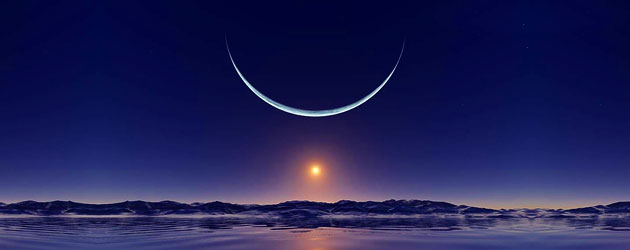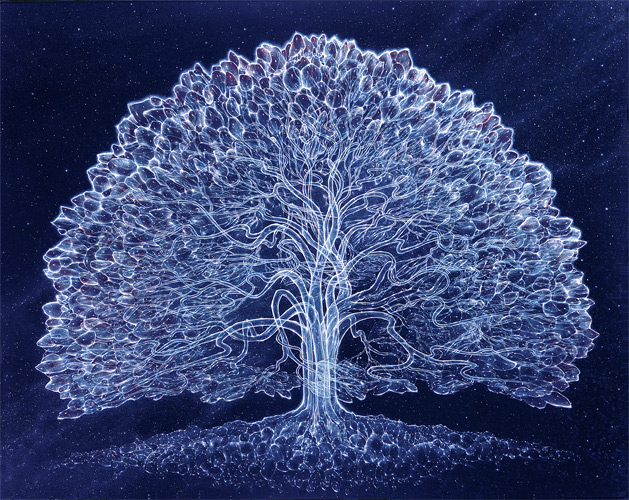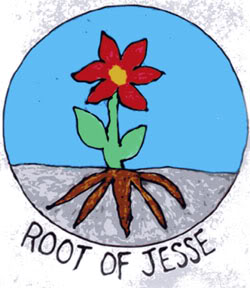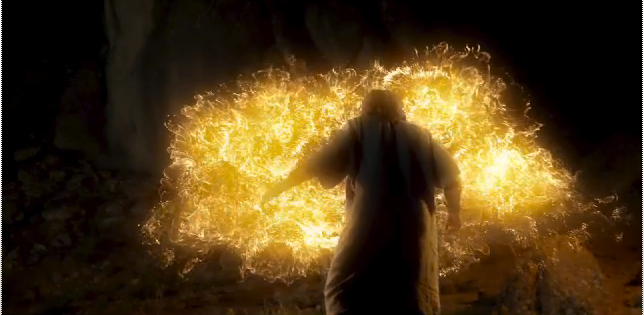December 21, Fourth Sunday of Advent - Winter is much more than a time of year - it's a state of being
 www.stuartwilde.comMy dad is 94 years old. Once a very sociable fellow, Dad used to thoroughly enjoy the company of people and loved to interact with whomever he encountered.
www.stuartwilde.comMy dad is 94 years old. Once a very sociable fellow, Dad used to thoroughly enjoy the company of people and loved to interact with whomever he encountered.
When I was very young, Dad introduced me to the world of opera and classical music. In his younger years, he was a skilled l baritone, a trombonist and French horn player.
Now, as his body continues to flail and fail with the plethora of events advanced aged people eventually encounter, Dad finds one of his greatest tribulations in his inability to hear. He is profoundly deaf. I've never known him as a fully hearing person; he has been partially deaf since his 'twenties and worn a hearing device since I was a child sitting in his lap. A bomb could explode when he sleeps and would not awaken.
Without a hearing device, Dad cannot communicate, enjoy music, socialize with people or attend a gathering. In the last few months, Dad complained of pain in his one 'good' ear- the one with the hearing device that gives him minimal hearing capacity. Dad cannot tolerate the pain that the device causes when placed in his ear because of another possible malignant carcinoma. In a word, he lives in perpetual silence and may be doomed from this point forward to existing in a completely silent world. And the more that world is removed from him due to his deafness, the more that Dad's personality changes and recedes into the darkness that the days, weeks and months of winter presents. His deafness makes him mute.
Dad is a permanent deacon and does his best everyday to recite the Hours and make his way to Sacred Heart Chapel, located on the third floor of the residence he now calls 'home.' Between his faith in God and his faith in me, his family, his care providers and his favorite sports teams. Thank God for sports and closed caption. Dad purges on, even though his body is giving out and and his spirit is diminishing, especially since his hearing is completely gone.
Dad's health care providers and other residents love him and see the difference in him. The community that all of the elderly residents have created among themselves is inspiring but even so, Dad tells me that he's finding life harder and harder and admits that 'it's getting tough' to go on.
I think of today's Gospel, Mary's "Be it done unto me" and Elizabeth's pregnancy past her time of youth and energy. Who do you know that needs you to attend to them, be present to someone in a time of need and help someone say "Yes, Lord, yes. Whatever and whenever you ask, "yes." Saying "yes" can expose us to our own willingness to take risks and become someone never expected or even wanted to be. Yet, the "yes' makes us who we are and who we are capable of becoming, with God's grace. So much to ask, so much to be gained.
I sit in the silence with Dad, do whatever I can do to make him comfortable in hands on help (you wouldn't believe how adept you can become as a patient navigator and hands on provider) and pray that there is a God of mercy who will call Dad home so that he can hear the music of heaven before too much time passes. Where Dad used to find joy and in daily living, the darkness of winter has descended, stealing his cheer and replacing it with a winter of silent gloom and depression. And it's very difficult to witness; I often leave him with a very heavy heart and praying a litany of saints to anyone that will hear me on Dad's behalf. As supportive as my family and friends have been, the buck stops here. As often as I've acted as a caregiver for elderly relatives and friends, this one has challenged my faith to the maximum degree.
So many people walk in my shoes. Children of elderly parents, parents of behavioral health patients, spouses, children, relatives and friends who know that their loved ones are sinking into the hole of darkness of despair, sickness, reluctance, addiction, neglect, denial --- name it. Winter is much more than a time of year - it's a state of being. Who are we for these people? And and how do we keep our own heads above water when we feel as though the people we attend to throw the net wide to drown us in darkness of their winter instead of turning toward where faith points - to light, to hope, to the 'yes' of faith? Or is living in the silence easier because we just don't want to respond, act and change? Do we turn a deaf ear that makes us mute to say 'yes' to whatever God asks?
The O Antiphon today sums today's sentiments up so well:
O Dawn
O Radiant Dawn, splendor of eternal light, sun of justice:
Come, shine on those who dwell in darkness and the shadow of death.
O come, O Dayspring, come with cheer;
O Sun of justice, now draw near.
Disperse the gloomy clouds of night,
And deaths dark shadow put to flight.
Rejoice, rejoice,
Emmanuel shall come to you, O Israel.
Come, Lord Jesus.
 Denise Morency Gannon
Denise Morency Gannon



